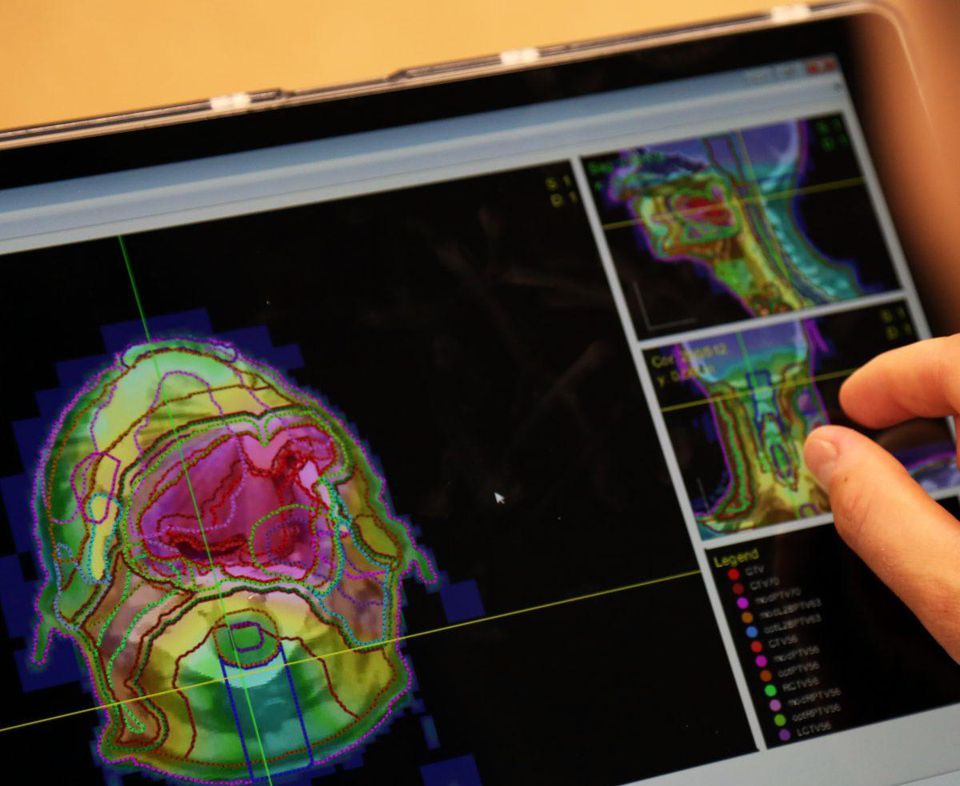The examination distributed in the diary Medical Physics utilized AI to mine verifiable radiation treatment information and composed calculations to create suggested treatment systems. To check the AI-created applicable treatment designs, the analysts took a gander at 217 patients with head and neck malignancy who had their radiation treatment plans created by means of customary techniques. The designs were equivalent.
“There have been other AI enhancement motors that have been created, yet the thought behind our own is that it all the more intently emulates the flow clinical best practice,” says Aaron Babier, the lead creator of the exploration from the University of Toronto Engineering Department.
Right now, creating radiation treatment gets ready for every individual patient’s tumor can take days, significant time for patients as the growth regularly keeps on developing and advance, yet additionally for doctors investing energy outlining these intricate treatment techniques.
Head and neck cancers are notoriously difficult to design treatment plans for as tumors can be remarkably different from patient to patient. The researchers hope that as the tool worked so well on this tricky, complex cancer type, it should be able to handle more common tumor types that don’t exhibit quite as much variation, such as prostate cancer.
Babier is quick to worry for this situation that AI should be a trade for human services experts, yet may spare them time by doing some critical basis. Once the product has made a treatment design, it would in any case be looked into by a radiation physicist and further adjusted, taking no less than a couple of more hours.
AI is touted to play a big role in the future of cancer diagnosis, monitoring and therapy, but concerns have been raised by some healthcare professionals about the ethics of using machine learning tools to make clinical decisions. One such concern published in an article earlier this year in the New England Journal of Medicine by researchers and MDs at Stanford stated:
‘Physicians must adequately understand how algorithms are created, critically assess the source of the data used to create the statistical models designed to predict outcomes, understand how the models function and guard against becoming overly dependent on them.’
Herein lies a fairly common concern with new technological developments in medicine nowadays—the need for MDs to attain specialist knowledge about the new diagnostic methods they use so that they can fully understand how much to rely on them to influence their decisions about patients. A similar discussion is ongoing for perpetually-controversial liquid biopsies for cancer.
Despite these concerns, investment in AI from those in the healthcare industry is commonplace, with huge companies including Microsoft and IBM using it for various applications currently. Many firms seem to see AI as a possible solution to try to streamline the lengthy and obscenely costly drug-discovery process. Toronto-based biotech company BenchSci has as of today counted 28 pharmaceutical companies and 97 startups currently using AI for their drug-discovery processes.
On account of utilizing AI to help radiation treatment plan, Babier says that his specific instrument is increasingly an expansion of what is presently accessible to medicinal services staff, as opposed to a transformation.
“It’s basically a truly basic module to help with what is as of now there in a clinical setting, yet with more keen parameters than as of now accessible,” said Babier.
The University of Toronto team are not the only
ones working on optimizing radiation therapy with AI. Other interested parties
include Google’s DeepMind Health, which is currently running a study with University College London
Hospitals.


